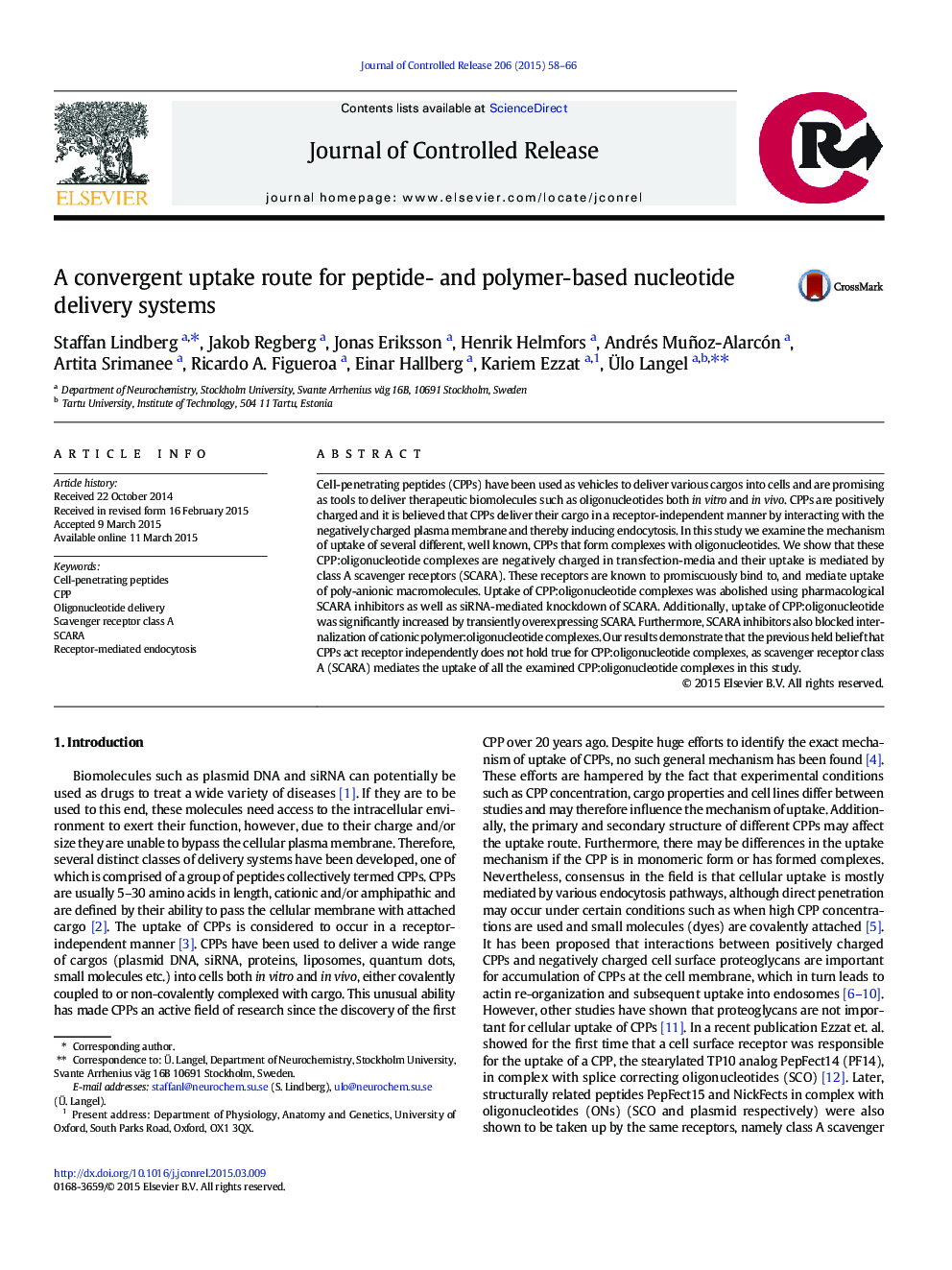| Article ID | Journal | Published Year | Pages | File Type |
|---|---|---|---|---|
| 1423810 | Journal of Controlled Release | 2015 | 9 Pages |
Cell-penetrating peptides (CPPs) have been used as vehicles to deliver various cargos into cells and are promising as tools to deliver therapeutic biomolecules such as oligonucleotides both in vitro and in vivo. CPPs are positively charged and it is believed that CPPs deliver their cargo in a receptor-independent manner by interacting with the negatively charged plasma membrane and thereby inducing endocytosis. In this study we examine the mechanism of uptake of several different, well known, CPPs that form complexes with oligonucleotides. We show that these CPP:oligonucleotide complexes are negatively charged in transfection-media and their uptake is mediated by class A scavenger receptors (SCARA). These receptors are known to promiscuously bind to, and mediate uptake of poly-anionic macromolecules. Uptake of CPP:oligonucleotide complexes was abolished using pharmacological SCARA inhibitors as well as siRNA-mediated knockdown of SCARA. Additionally, uptake of CPP:oligonucleotide was significantly increased by transiently overexpressing SCARA. Furthermore, SCARA inhibitors also blocked internalization of cationic polymer:oligonucleotide complexes. Our results demonstrate that the previous held belief that CPPs act receptor independently does not hold true for CPP:oligonucleotide complexes, as scavenger receptor class A (SCARA) mediates the uptake of all the examined CPP:oligonucleotide complexes in this study.
Graphical abstractFigure optionsDownload full-size imageDownload high-quality image (179 K)Download as PowerPoint slide
